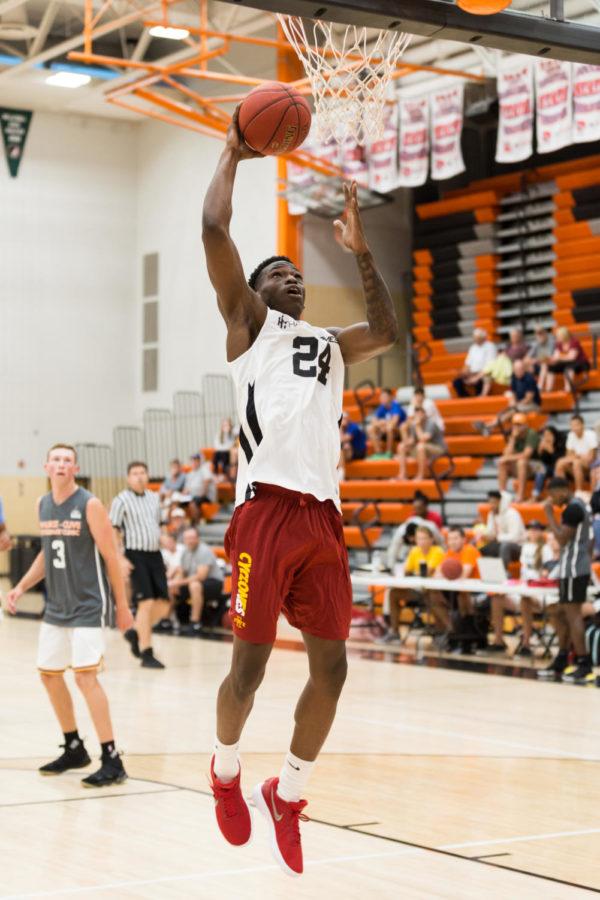Galloway: Student-athletes should be paid
Mikinna Kerns/Iowa State Daily
Members of the Iowa State Basketball Team took part in the second weekend of Cap City League games Sunday June 24 at Valley High School. This weekend seven ISU Players participated.
September 23, 2018
Playing collegiate sports is a seven days per week job. Practices are both physically and mentally draining. Along with the demanding practices, student athletes have to travel around the country to compete against other schools.
We assume these star athletes reap the fruit of their labor and think their life is glamorous but this is not necessarily the case. They often have trouble making ends meet.
Student-athletes go from having crowds chant their names one moment to having trouble finding enough money to get a post-game meal. These athletes on scholarships are forbidden to attain a job while students on academic scholarships are allowed to be employed. Meanwhile, the universities rake in enormous sums of money off of these student-athletes. It’s a daily sacrifice of their bodies to reach peak ability so they produce excellence on the big stage.
Short-term and long-term health concerns present many issues for student-athletes. Finding a quality yet cheap source of food can be burdensome.
“Portland Trailblazer Shabazz Napier described his experience as a college point guard in 2014 that was eerily, and sadly, so close to mine” said Kareem Abdul-Jabbar, retired basketball player, in an article for The Guardian. “He states, ‘we do have hungry nights that we don’t have enough money to get food in … sometimes, there’s hungry nights where I’m not able to eat, but I still gotta play up to my capabilities.’”
As far as long-term health problems are concerned, colleges are known to abandon student-athletes who suffer severe injuries by revoking the scholarship.
“But scholarships depend on one’s ability to play and they may be taken away in cases of severe injury,” Abdul-Jabbar said. “This leaves the student without the ability to play or earn an education.”
It’s somewhat of a misconception that a full-ride scholarship guarantees the certainty of a free tuition throughout the entire college experience. This is not the case. If a severe injury occurs, the scholarship may be dropped and the athlete will be left empty handed.
Universities earn millions of dollars from college athletics. One of the biggest events in college sports is March Madness and the revenue is through the roof.
“That $11 billion deal — OK, it’s $10.8 billion to be exact — between the NCAA and CBS/Turner Sports for March Madness between 2011 and 2024. We’re talking $11 billion for three weekends of television per year,” said ESPN commentator Michael Wilbon.
It seems prosperous that a bit of that revenue won’t trickle down to the athletes who make this event possible. The student-athletes don’t have many options to make money because they are not allowed to become employed during the school year.
Student-athletes sacrifice their health to compete at the highest level of collegiate sports. They have to balance travel, practices, games, school and trying to find enough money to make ends meet. Student-athletes should be compensated for all their hard work.
















